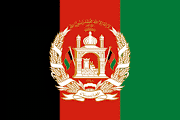OVERVIEW
 Afghanistan is a landlocked country, located at the crossroads of Central and South Asia. It has an area of 652,867 km2 and a population of 40.218234 inhabitants.
Afghanistan is a landlocked country, located at the crossroads of Central and South Asia. It has an area of 652,867 km2 and a population of 40.218234 inhabitants.
Western countries are very concerned about the danger that exists regarding the undoing of all those positive achievements made, over the last 20 years, notably regarding human rights, and women and girls, in particular. They are providing humanitarian aid to Afghanistan, which is currently in a very difficult situation, but are being very careful in dealing with the Taliban government, trying to make its need for aid conditional on a possible maintaining of some of the previous achievements. No country has so far recognized the Taliban government.
The Taliban have formed an interim government, which has many radical elements of the movement in its ranks, is not all inclusive and has no women in its composition.
BILATERAL RELATIONS
Following the withdrawal of US and NATO troops from Afghanistan and the coming into force of the Taliban, Albania proved ready to temporarily house some 4,000 Afghan refugees whose lives were in danger in the country, until they were finally resettled in the United States.
Albania established diplomatic relations with Afghanistan on August 16, 2006. Our cooperation with this country, due to the situation there, has been developed in the framework of NATO missions, to establish security and stability in the country.
The ISAF mission, which ended in late 2014, was replaced by the Resolute Support Mission (RSM). Albania continued its engagement within this new mission, which was not a combat mission, but a training, advisory and assistance mission for the Afghan National Security Forces (ANSF), until a decision was made, in coordination with the NATO Allies, for leaving Afghanistan.
During the period of our engagement in Afghanistan, several visits of our high ranking officials to this country (defense ministers, prime minister) took place, to inspect our troops deployed there. During these visits, meetings were held with their counterparts and other senior Afghan officials.
Our engagement within ISAF from the first contingent of the Armed Forces, sent in August 2002 to Kabul, came to be gradually increasing both in number and variety of engagement in various tasks, in almost all regional commands in Afghanistan, as in Herat, Mazar-i-Sharif, ISAF Headquarters (Kabul), NATO Training Mission (Kabul and Herat), OMLT (Kabul) teams, special forces in Kandahar and special forces trainers in Shardak. Albania has contributed with 2944 troops in total, during this mission. In February 2012, a member of the Albanian Special Forces Battalion (Eagle 4), Captain Feti Vogli, a martyr of the homeland, was killed in Kandahar, Afghanistan.
The US and other Western countries were engaged in a giant evacuation operation to get their nationals and all those who had cooperated with them during their military and civilian engagement there, for the past 20 years, out of Afghanistan.
The Armed Forces of the Republic of Albania have started their engagement in Afghanistan since August 2002, within the NATO ISAF mission, which lasted until the end of 2014. Within this mission, Albania contributed (alongside 45 other NATO member and non-member countries) with two companies deployed in Herat, in the Western Regional Command and a platoon in Kabul. Albania also contributed with a staff of 5 military to the ISAF Command in Kabul and 2 OMLT (Operational Mentor and Liaison Team) in Mazar-i-Sharif, the Northern Regional Command. Albania has also sent a medical team and a police mission to Afghanistan.
For about 20 years, since 2001, US and NATO troops have been stationed in Afghanistan, following the war they waged there to root out al-Qaeda. During these 20 years, Western countries tried to build and consolidate democratic institutions in Afghanistan, fighting against the Taliban and other terrorist groups, who wanted to turn back the time, when they ruled the country. After the withdrawal of US and NATO troops, the Afghan army was unable to resist the fierce Taliban offensive, by abandoning the fighting front, in most cases. This prompted the Taliban, on August 15, 2021, to enter Kabul and establish their control over the country.
Stay Connected
Must Read
Related News